Pakistan's Perfidious Plot to Wrest Control over Gilgit-Baltistan
- In Foreign Policy
- 12:02 PM, Nov 13, 2020
- LT GEN P R SHANKAR (Retd)
Pakistan recently declared that Gilgit and Baltistan will be its fifth province. It has announced its decision to hold the GB Assembly elections on November 15. It is an illegal step. It is a repeat act by Pakistan during Independence when it was illegal with perfidy. It has major implications for the region. It needs analysis.
Gilgit-Baltistan shares borders with, Khyber Pakhtunkhwa (West), Wakhan Corridor (North), Xinjiang (East and NE), Kashmir Valley (South) and Leh (SE). It is also known as Balwaristan. It encompasses an area of approximately 73000 sq km with a population of about 2 million. Literacy rate is high. Its topography is like Leh. High wind-swept plains and snow-clad mountains. It is in the lap of the greatest mountain ranges of the world – Hindukush, Pamirs, Karakorams and Himalayas. Agriculture and Mountaineering Tourism dominate the economy. Skardu is connected to the Leh region through the Indus and Shyok waterways. The Karakoram highway runs from Islamabad, Gilgit, Kunjerab Pass and Kashgar. This is the backbone of the CPEC also. The Indus collects most of its waters in Gilgit – Baltistan. In fact, water security of Pakistan hereafter will be at the expense of Gilgit and Baltistan. It is an area of significant strategic importance. It gives India a direct overland access to Afghanistan (Wakhan Corridor) and the Central Asian Republics.
Maharaja Hari Singh acceded the complete state of Kashmir including Gilgit, Baltistan, Kashmir, Jammu, Leh and Ladakh to India in 1948. These areas were never acceded to Pakistan. Hence all this is essentially Indian Territory. On the other hand, Pakistan signed a standstill agreement with the ruler but broke it and invaded Kashmir soon after Independence. Pakistan occupied POK by force. Gilgit and Baltistan were amalgamated into Pakistan through British perfidy. Pakistan has consistently denied treating these areas as its provinces. These areas have been in illegal occupation by Pakistan for seven decades.
Gilgit-Baltistan has been governed through extra judicial and legislative mechanisms outside the Constitution of Pakistan. People of Gilgit-Baltistan have been consistently told that they are not an integral part of Pakistan. Article 257 of the 1973 Constitution of Pakistan states, "When the people of the State of Jammu and Kashmir decide to accede to Pakistan, the relationship between Pakistan and the State shall be determined in accordance with the wishes of the people of that State." However, it does not specifically mention that the regions of the state that it presently occupies are part of its territory. In September 1994, the Supreme Court of Pakistan held that since the Gilgit-Baltistan region was not part of Pakistan, the judicial matters pertaining to it were outside the purview of the Pakistani courts. Ipso facto Gilgit-Baltistan is legally not part of Pakistan. POK and Gilgit- Baltistan whether they were a single territorial unit (earlier) or bifurcated (now), have been administered under special Councils headed by the Prime minister of Pakistan without representation in the Pakistan national assembly or recourse to the supreme judicial processes of the land. Simply put, Gilgit-Baltistan is not an integral part of Pakistan. It is a part of India.
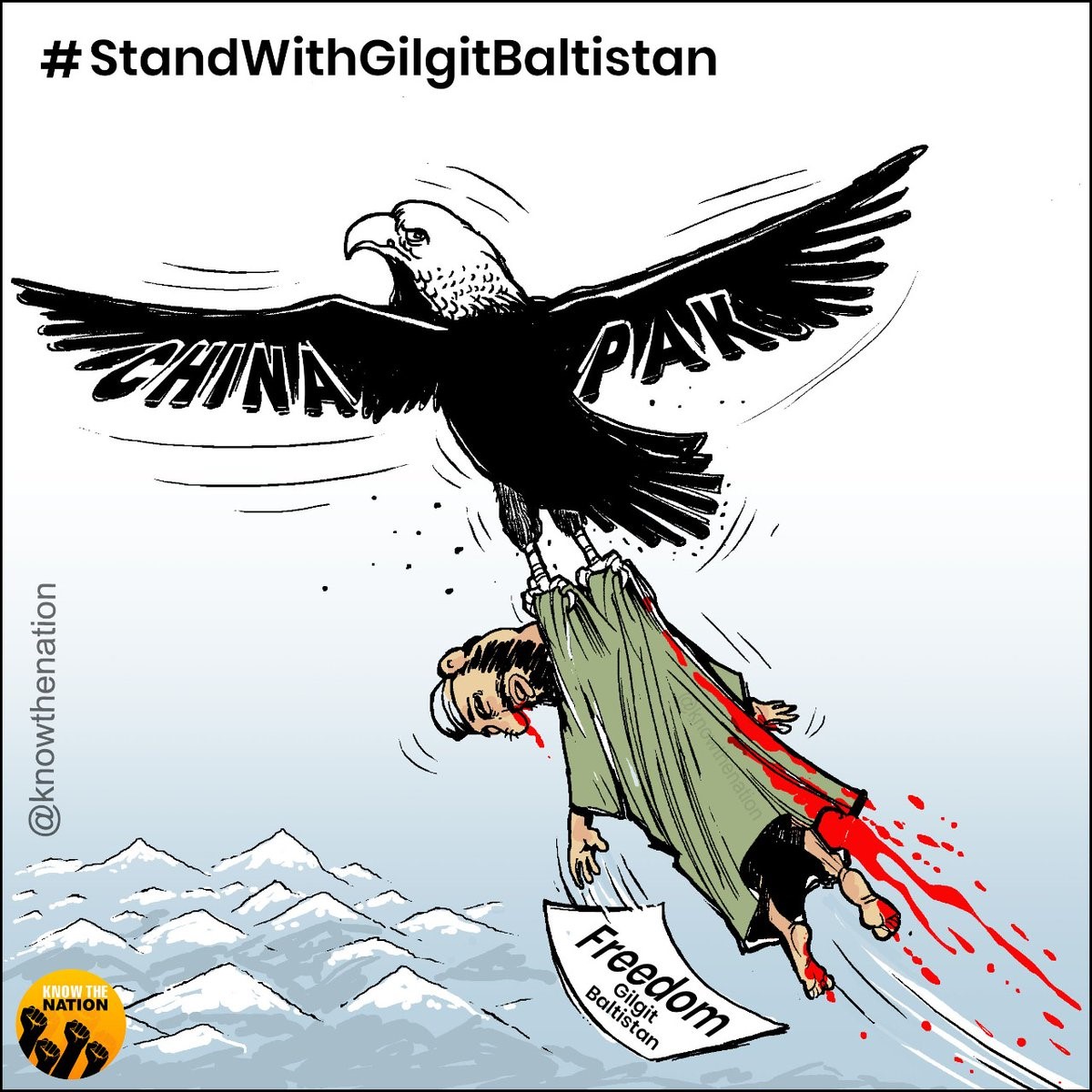
Gilgit-Baltistan is a simmering cauldron of discontent. The continued deprivation of political, economic and human rights has been driving the people of this strategic area to northern end of desperation. Initially people of this area wanted to be part of Pakistan as its province. This was denied to them. In 2009, the Gilgit-Baltistan Empowerment and Self-Governance Order gave them some rights, but were rolled back by the new Gilgit-Baltistan Order in 2018. Deprived of constitutional rights, they are now aggrieved. It is a tribal area. The population was predominantly Shia. Though it is still a Shia majority region, a huge Sunni Influx has been encouraged; which upset the ethnic balance and gave rise to sectarian strife. Gilgiti and Balti soldiers have sacrificed their lives for Pakistan without recognition. Poor treatment of Northern Light Infantry soldiers in the aftermath of the Kargil War is not forgotten.
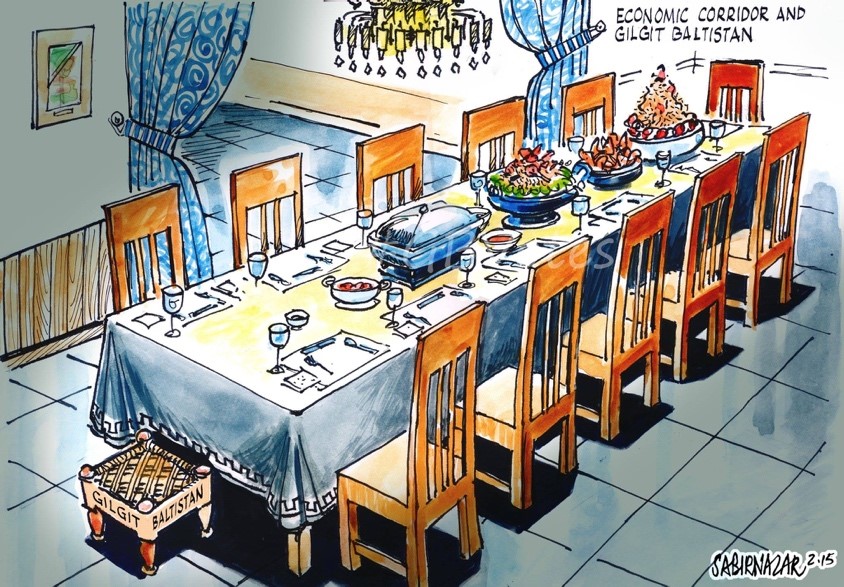
The Karakoram Highway is the backbone of the CPEC and pollutes the environment. It has also brought in drugs and guns. Land acquisition for CPEC is without due compensation for the community, since it is customarily “common land”. CPEC is also depriving them of livelihood due to influx of Chinese labor. There is very little for the locals in the CPEC development. People are anti-CPEC and anti-Chinese. The area has been kept underdeveloped deliberately and in abject poverty. It is said that “Local wisdom dictates that when it suits Pakistan, GB is a formal part of the country; and when it suits Pakistan to show GB as a disputed territory, it is shown as that." The disaffection rate is high. Large scale disturbances and agitations are envisaged. Overall, in this backdrop of sentimental, ethnic, legal, economic, political strife and uncertainty, scrapping Article 370 by India has spurred people to look beyond Pakistan. Very clearly there are indications that activists are knocking at various doors to get rid of the Pakistani yoke. The Balwaristan National front seeks Independence from Pakistan. There is even a nascent sentiment to join India.
Abrogation of Article 370 by India has irreversibly cemented J&K as an integral part of India like other states. It brought into focus the future of illegally occupied POK and Gilgit-Baltistan. At some of point of time India could commence the process of retaking Gilgit and Baltistan. Commencing the process will change the narratives. Controversial and illegal projects like CPEC and illegal cessation of the Shaksgam Valley by Pakistan to China will have to be revisited.
China and Pakistan have sensed this and have taken steps to amalgamate the area into Pakistan. Everyone thinks Pakistani actions are a retaliation to abrogation of Article 370. No. It is because of the CPEC and the Diamer Bhasha Dam. Commencement of the controversial Diamer Bhasha Dam was announced in the last week of July. The dam is located in a high seismic zone. The weight of the large water body in the catchment area could trigger sympathetic tremors during any regional seismic activity. It will have an ecological fallout like unseasonal rains, landslides and floods that might affect the adjacent areas in Pakistan as well as in India. The dam faces local resistance, since it will submerge about 50 villages upstream. More than 35,000 people will get displaced and sent to areas afar. There is also a dispute between local tribes over compensation. There is a domestic dispute between Gilgit Baltistan and Khyber Pakhtunkhwa over claims on the royalty from the dam. There is a grouse that Punjab will be the main beneficiary. Residents are also protesting the destruction of historical Buddhist sculptures, inscriptions and petroglyphs in 50 villages, which will be submerged once the dam is operational.
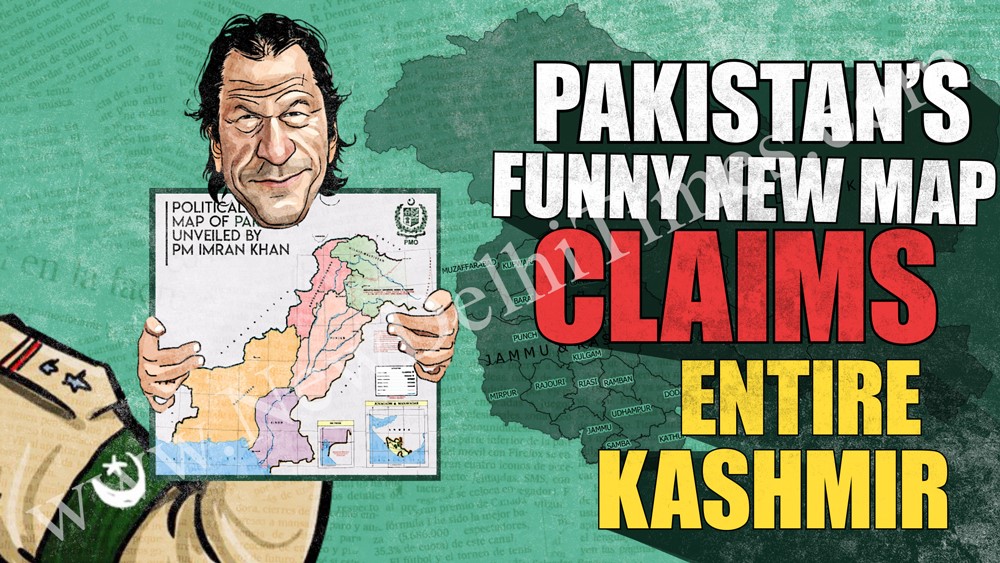
Despite all this a joint venture between Power China ( a Chinese state-run firm) and Pakistan's Frontier Works Organization (a commercial arm of Pakistan's military business empire) was formed and a contract for the Dam construction was awarded to it. The contracted original outlay is $14 billion. 70% share is Chinese and 30% Pakistani. The funny thing is that Frontier Works Organization is part of the Fauji Foundation network of the Army. It all boils down to lining the pockets of Pakistani Army Generals and expanding their business empires. To buttress all this Pakistan came out with a half-cocked map in the first week of August with an open ended border incorporating Gilgit Baltistan as part of Pakistan. Now it has declared the Gilgit Baltistan area as its sixth Province and is holding elections there in a couple of days. Many perceive that the elections are being held on the point of the gun.
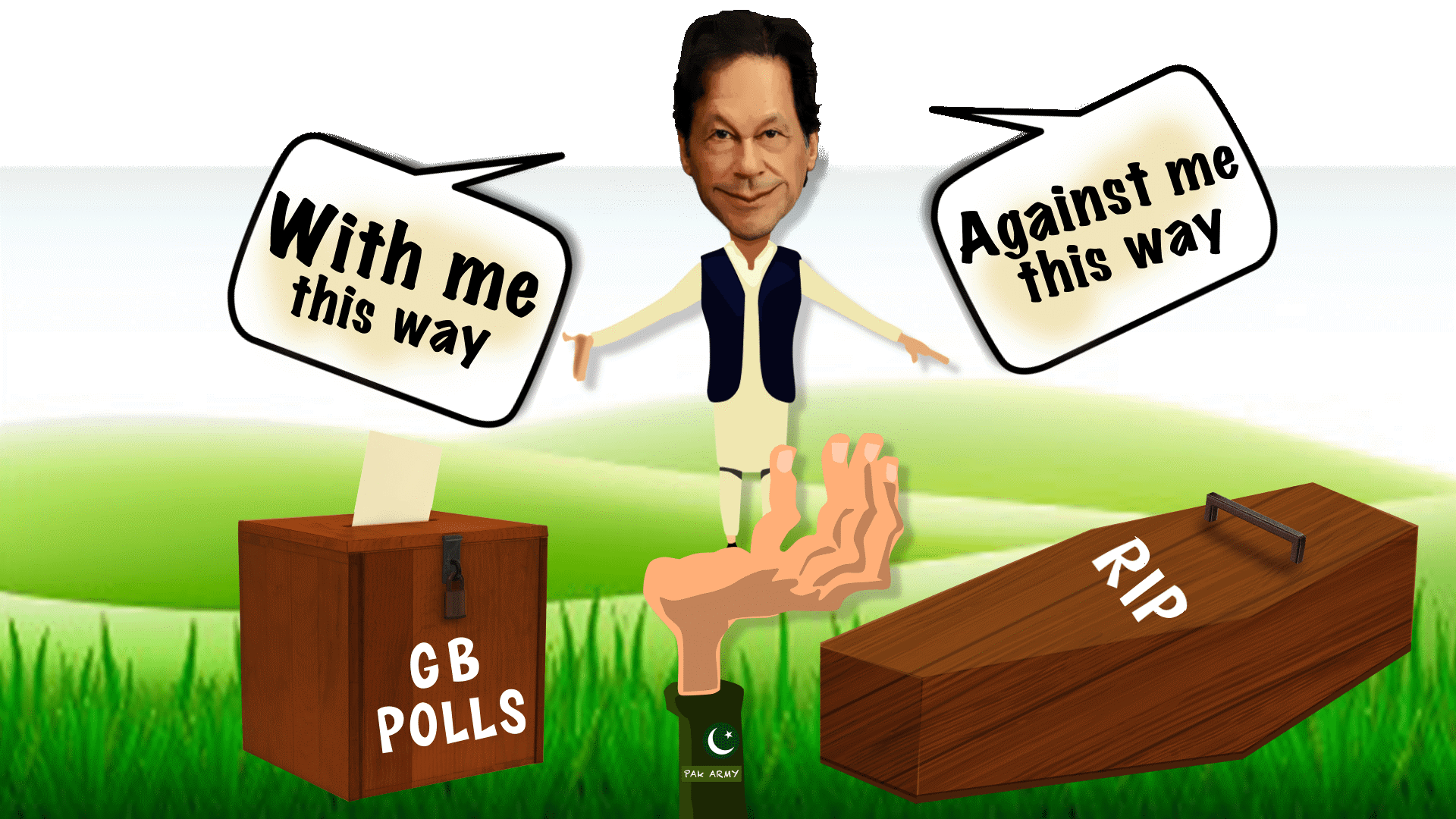
There are major implications of this action by Pakistan which has been carried out in collusion with China to give legality to CPEC activity. However, by declaring this area as its fifth province, Pakistan has violated all UN Conventions on J&K. It also means that it has given up all its rights on J&K for ever. In any case the action is clearly expansionist in nature. An area which it held as disputed for seven decades and which its own supreme court has ruled to be not part of Pakistan is being usurped into it as integral to its territory. The entire move caters for certain vested interests of Pakistan and China in which the people are forced to do their bidding. People have no choice to obey since the consequences could mean death or forced displacement. The construction of the Diamer Bhasha mega dam will destabilise the area in many ways. Most importantly, all the construction activity in this area will increase Chinese presence and has major military implications for India which I have outlined in an earlier article. Pakistan’s new map to include J&K and Ladakh as part of its territory and its collusion with China to build a dam in our territory repudiates the Shimla Agreement and the Indus Water Treaty. We must therefore commence activities to retake POK as outlined in an another article and pursue the water scarcity issue in Pakistan. This action by Pakistan has to be seen in the wider context of Chinese insidious machinations which I have also outlined earlier. We must make Pakistan and China look inwards and options for that are many – kinetic and non-kinetic. We need to get our act together.
Other articles by the author can be accessed @- https://www.gunnersshot.com/2020/
All the images are provided by the author.
Disclaimer: The opinions expressed within this article are the personal opinions of the author. MyIndMakers is not responsible for the accuracy, completeness, suitability, or validity of any information on this article. All information is provided on an as-is basis. The information, facts or opinions appearing in the article do not reflect the views of MyindMakers and it does not assume any responsibility or liability for the same.



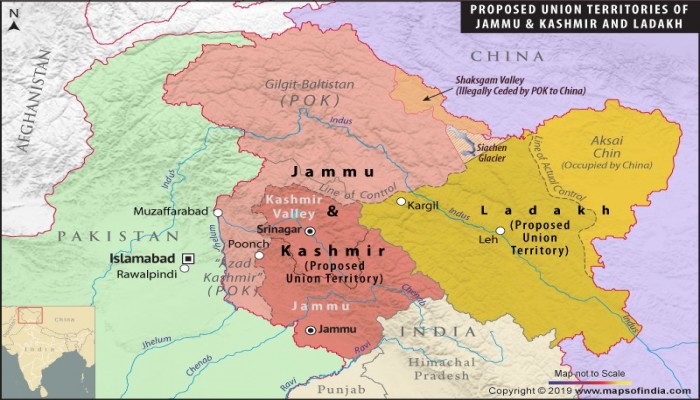



Comments